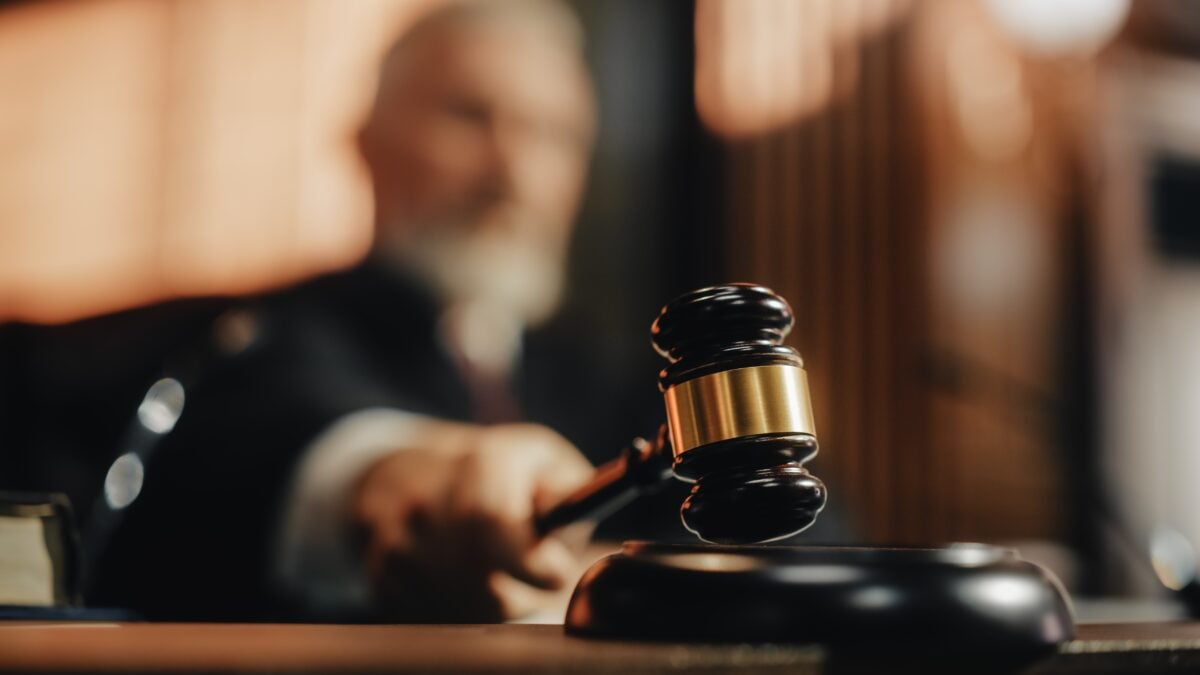TLDR
- A U.S. judge ruled Yuga Labs’ NFTs do not meet the Howey Test for securities.
- The lawsuit against Yuga Labs claimed Bored Ape NFTs were misleading investments.
- Yuga Labs’ NFTs were marketed as digital collectibles, not investment products.
- The court found no profit expectation between Yuga Labs and NFT buyers.
A U.S. judge has dismissed a lawsuit filed against Yuga Labs, the company behind the Bored Ape Yacht Club (BAYC) and ApeCoin. The lawsuit claimed that the NFTs offered by Yuga Labs should be classified as securities. However, Judge Fernando M. Olguin ruled that the plaintiffs failed to demonstrate how these digital assets met the criteria of the Howey Test, a legal standard used to define investment contracts. This ruling is a key development in the ongoing debate about whether NFTs can be treated as securities under U.S. law.
Judge Rules Against Investors’ Claims
The lawsuit, filed in 2022, argued that Yuga Labs misled investors by promoting its NFTs as investment opportunities. However, Judge Olguin determined that the plaintiffs did not meet the three requirements of the Howey Test, which is used to determine if an asset qualifies as a security. The test looks at whether there is an investment of money in a common enterprise with the expectation of profits derived from the efforts of others.
In his ruling, Olguin explained that Yuga Labs marketed the Bored Ape NFTs as digital collectibles and membership tickets to an exclusive club, rather than as investment products. He further stated that the expectation of profits alone, based on vague promises of future benefits, does not convert a product into an investment contract. Olguin wrote, “The fact that defendants promised that NFTs would confer future, as opposed to immediate, consumptive benefits does not alone transmute those benefits from consumptive to investment-like in nature.”
No Common Enterprise, No Investment Contract
One of the critical points of the ruling was that there was no “common enterprise” between the buyers and Yuga Labs. Under the Howey Test, the existence of a common enterprise is a key element to determine whether an investment contract exists. Olguin pointed out that while NFTs can be traded on public blockchain networks, there was no ongoing financial connection between Yuga Labs and individual NFT holders.
Moreover, the court concluded that there was no explicit promise of profits linked to the purchase of NFTs. This is another important component of the Howey Test: the expectation of profits from the efforts of others. The plaintiffs had argued that the price and trade volume of the NFTs could signal an expectation of profit. However, the court found these statements to be too general and insufficient to establish a profit-driven relationship.
A Precedent for NFT Regulation
This ruling sets a significant precedent in the ongoing debate over whether NFTs should be regulated as securities. Many experts have raised concerns that NFTs, particularly those with profit-oriented features, could fall under the same legal framework as stocks or bonds. However, Judge Olguin’s decision strengthens the view that NFTs, especially those designed as collectibles and offering membership perks, do not meet the definition of a security.
Legal experts noted that the case’s outcome supports the argument that most NFTs are more accurately classified as digital assets rather than investment contracts. This decision could have implications for other ongoing legal cases involving NFTs and their classification under U.S. securities laws.
Other Legal Developments in the NFT Space
This ruling comes shortly after a major settlement between Nike and StockX in their legal battle over NFTs linked to branded sneakers. Nike had accused StockX of selling counterfeit Nike-branded NFTs, but the two companies recently settled the case, avoiding a trial. The settlement, like the Yuga Labs decision, could help clarify the legal boundaries of NFTs in terms of intellectual property and securities law.
As the market for digital collectibles continues to grow, many in the industry are closely watching how courts will handle future cases involving NFTs and other digital assets. While Yuga Labs has won this round, the regulatory landscape surrounding NFTs remains uncertain, and further legal challenges are expected.







